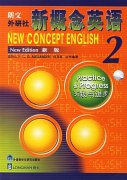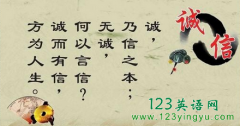Are You Happy? 你幸福吗?
编辑:高中作文网Are You Happy? 你幸福吗?
When a migrant worker was asked, “Are you happy? (Ni Xing Fu Ma?),” by a CCTV interviewer, he looked puzzled before replying, “My surname is Zeng (Wo Xing Zeng).” This was a CCTV interview telecast during the National Day holiday, which has become a joke among netizens.
当一个外来务工人员被央视记者问及“你幸福吗”的时候,他显得很困惑然后回答:“我姓曾。”这是国庆期间央视采访节目转播中的一幕,在网民中传为笑料。
In fact, “Xing Fu” (happiness) has become a buzzword since the show. But the survey results have failed to convince many people, for the interviewees were surprised to speak in front of a camera.
事实上,自从这个节目播出以来“幸福”就成为了一个流行词。但是调查结果并没有使大多数人信服,因为受访者在镜头前说话时都显得很惊讶。
The rural migrant worker surnamed Zeng first turned down the interview, saying, “Don’t ask me (any questions). I’m just a migrant worker.” His answer showed migrant workers and TV reporters live in different worlds and they cannot even communicate with each other.
这位姓曾的农村进城务工人员起初拒绝被采访,说“别问我(任何问题),我就是个打工的而已。”他的回答显示出外来务工人员和电视记者生活在不同的世界,他们之间甚至无法交流沟通。
Similarly, when asked, “Are you happy?” a 73-year-old man collecting used plastic bottles in a street in Zhejiang, said, “The bottles can be sold for 0.1 yuan each.” Asked again, he said, “I live on a government subsidy of 650 yuan a month. The government is good.” The reporter pestered on, “My question is, ‘Are you happy?’” The old man answered, “My hearing is not good.”
类似的反应还有一位在浙江大街上以收集废旧塑料瓶为生的73岁老人,当被问及“你幸福吗?” 他答非所问地说:“瓶子每个能卖一毛钱。”再问一次,他又说:“我靠一个月650块的政府补助金生活。政府很好。”记者坚持问,老人回答:“我的耳朵不好。”
Many netizens have questioned the reporters’ way of interviewing and their insistence on reaching the same conclusion—that the inter- viewees including the migrant worker and the senior citizen are “happy” even though they didn’t understand the interviewers’ questions.
很多网民质疑了记者采访的方式,以及他们坚持得到这样一个结论的做法:受访者,包括外来务工人员和老年人,都是幸福的,即使他们听不懂记者的问题。
Happiness cannot be evaluate in concrete terms. But in sharp contrast to the same answers that the TV interviewees gave, online surveys show more than half of the respondents saying they were unhappy. The online interviewees said openly that they are not happy due to the difficulties they face. The reasons for the unhappiness range from poor healthcare, to education and employment.
幸福不能以有形的方式来衡量。但是与电视上的受访者对同一问题给出的答案形成鲜明对比的是,网络调查显示超过一半的受调查者表示他们不幸福。网上的受访者坦率的表示他们因为面临的困难而感到不幸福,其中涵盖了从薄弱的医疗保障到教育和就业等方方面面。
The central government has always emphasized the importance of learning about people’s true situation and reflecting their wishes and opinions. Now there are many TV programs giving common people the chance to voice their opinions.
中央政府一直强调了解人民真实生活情况以及反映人民愿望和意见的重要性。现在有很多电视节目给予普通人表达观点的机会。
It is good that the Chinese media has begun focusing on people’s happiness, but they should have a “down to earth” attitude.








